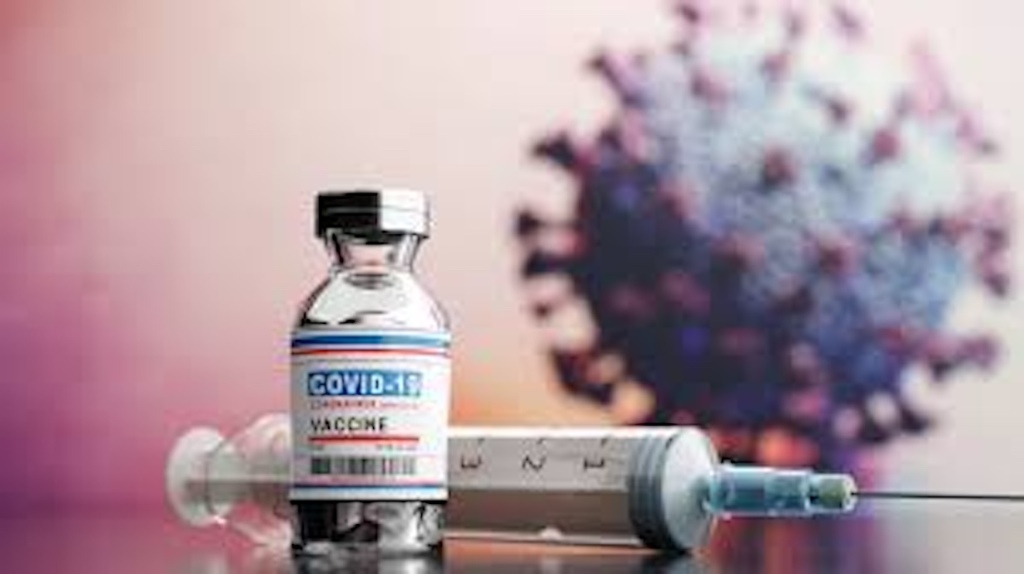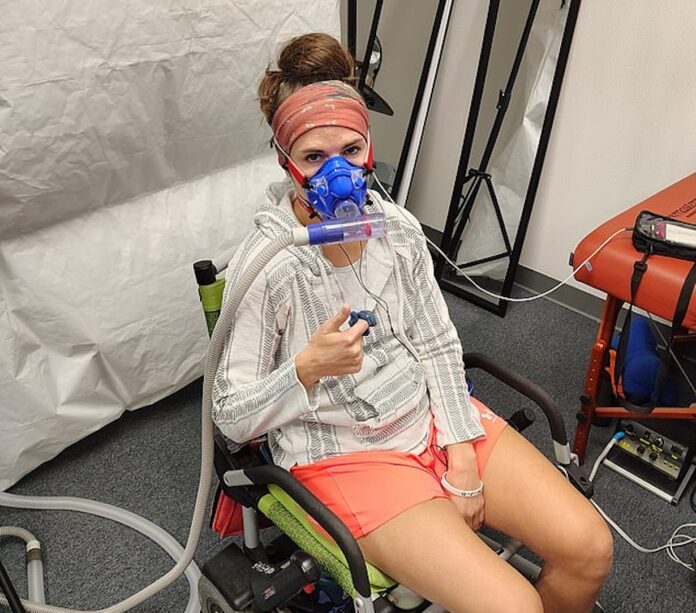For years, many Americans have dealt with debilitating symptoms after receiving the Covid vaccine, but were told there was no evidence linking their health issues to the shot. Some were dismissed and labeled as “antivaxxers,” while others were told their symptoms were imagined or simply the result of long Covid. These people suffered in silence, without the support or understanding they needed. However, this situation changed dramatically this week. A groundbreaking study by a team of scientists from Yale University revealed a previously unknown condition called “post-vaccination syndrome” (PVS). This condition could explain a variety of symptoms, including brain fog, dizziness, tinnitus, extreme fatigue, and even biological changes to patients’ immune systems.
Groundbreaking study reveals post-vaccination syndrome
The study, led by Dr. Akiko Iwasaki, a renowned immunologist at Yale, has sent shockwaves through the medical community. While Dr. Iwasaki understands that her findings might be controversial, she is determined to shed light on the suffering of those affected by this condition.
She made it clear in an interview with DailyMail.com that her team is committed to continuing their research to bring more transparency to the issue and improve vaccine safety. Dr. Iwasaki’s message to those suffering from PVS is simple: “We see you. We listen, and we will keep researching this condition.” The researcher strongly believes that their work could be a paradigm-shifting moment in the field of vaccine safety, offering hope to those who have long felt ignored and dismissed by the medical community.
According to Dr. Iwasaki, people with PVS have often been labeled as “unbelievable” because the condition is not yet recognized by medical authorities. She hopes that rigorous scientific research will not only lead to better diagnostic tools but also to more effective treatments and preventative measures. This research could also result in vaccines that are both safer and more transparent. Dr. Iwasaki and her team emphasize that their findings are still in the early stages, and they plan to conduct larger studies to validate their results.
A call for better medical care
Dr. Iwasaki’s team is pushing for expanded research to better understand the scope of PVS. Although the exact number of people affected is still unclear, the findings so far point to a significant problem. The team is planning to conduct larger studies with more participants to validate the initial results. “We need more funding to continue this work,” Dr. Iwasaki explained. This research is crucial, not only for understanding the condition but also for developing strategies to improve the care and treatment of those who are suffering. The hope is that more research will eventually lead to a better understanding of PVS and provide more transparent and reliable information for those who have been affected.
Despite the unsettling findings from the Yale team, the Centers for Disease Control and Prevention (CDC) still recommends Covid vaccines, particularly for vulnerable populations, such as the elderly and those with compromised immune systems. The CDC has pointed out that Covid-19 continues to cause fatalities, with approximately 300 deaths reported each week in the U.S. As such, the government maintains that vaccination remains a critical tool in preventing severe illness and death from the virus.
Vaccine injury victims share their stories
Following the publication of the Yale study, many individuals who have reported suffering from vaccine injuries expressed a sense of validation. For years, these individuals felt their symptoms were ignored or minimized, but now, with the release of this research, they finally felt that their experiences were being taken seriously. One of these individuals is Kari Ponce de Leon, a 43-year-old mother from Montana. Kari received the Pfizer Covid vaccine in February 2021, motivated by a sense of duty to protect herself and others. However, her decision quickly turned into a nightmare. Just two days after receiving the shot, she began experiencing troubling symptoms, including red spots on her hands and uncontrollable nosebleeds.

A dangerous health crisis
Kari’s symptoms worsened. She sought medical help. Doctors diagnosed her with a series of blood conditions. These conditions caused her immune system to block platelets. Platelets are essential for blood clotting and wound healing. Without enough platelets, Kari faced a very real danger. She was at risk of uncontrolled, life-threatening bleeding. After months of medical treatments, her condition stabilized. These treatments included platelet infusions. However, the root cause of her health issues remained a mystery. It wasn’t until later that a doctor admitted something important. The vaccine might have been responsible for her condition. No other explanation could be found.
The Yale study may provide some insight into Kari’s condition, as several participants with PVS have been found to have reactivated Epstein-Barr virus (EBV). EBV is a common virus known to cause flu-like symptoms, swollen lymph nodes, and nerve issues. It can also attack the blood and marrow, which may explain Kari’s sudden blood disorders. Kari, who has always supported vaccines, expressed frustration with the lack of support from public health authorities. “I thought I was doing the right thing,” she said. “But after the vaccine, it felt like I was abandoned. It’s demoralizing. It makes me sad that I can’t trust public health institutions anymore.”
Epstein-Barr virus: A possible link
The reactivation of Epstein-Barr virus in individuals with PVS is a significant finding in the Yale study. This could offer a potential explanation for the diverse range of symptoms associated with the syndrome, including the blood disorders experienced by Kari. While Kari continues to support vaccines, she has become more cautious about blindly trusting treatments heavily promoted by government health agencies. “It’s just frustrating,” she said. “I did what I thought I was supposed to do, and now I’m left with these ongoing issues.”
Dr. Iwasaki’s research is part of the broader LISTEN Study, an ongoing investigation into post-vaccine injuries and long Covid, a mysterious condition affecting millions of Americans. Long Covid manifests in many ways, from extreme fatigue to brain fog and shortness of breath. The exact cause of long Covid remains poorly understood, but Dr. Iwasaki’s team has a theory: they believe the Covid virus could be “hiding” in internal organs like the gut, making it undetectable in standard nasal tests. This theory is still being tested, but it represents an innovative approach to understanding the condition.
Preparing for future pandemics
In addition to their work on Covid-related issues, Dr. Iwasaki and her team are also studying bat coronaviruses, which are similar to Covid-19. Their research focuses on how these viruses replicate, as understanding this process could help prepare for future pandemics. The team is also researching immunotherapy for cancer, which could have far-reaching implications for a variety of diseases.
Dr. Iwasaki’s groundbreaking work could mark a turning point in how post-vaccination injuries are understood and addressed. With more research and awareness, post-vaccination syndrome could eventually be recognized as a legitimate medical condition. This recognition could lead to better care for those suffering from the condition, as well as more transparency and safety in future vaccine development.




